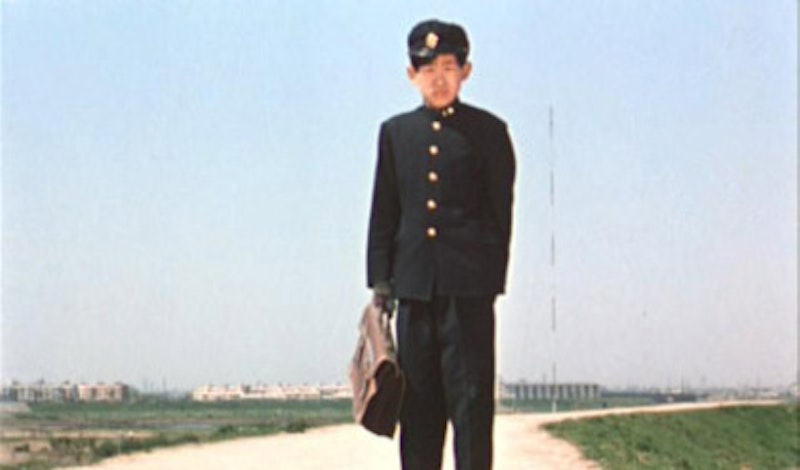I still haven't seen Tokyo Story, or any other films Ozu directed, but I certainly get the impression the bulk of his work is quite different from Good Morning. At the very least, the film seems a bit out of synch with his reputation. Peter Bradshaw, in an appreciation for The Guardian, characterizes Ozu's work as "gentle quietism and transcendental simplicity." I suppose you could argue that Good Morning shares those qualities, as long as you find something gently quietistic or transcendentally simple about the film's opening and closing scene: a farting competition that ends in tragedy when a young boy craps his pants.
The first thing you'll notice about Ozu's style in Good Morning is also the simplest: he never, never, never moves the camera. No dolly shots. No zooms. No tracking around the room. He'll cut to a different angle, but every shot is static. You can't illustrate this with a still, obviously, but it's pretty striking.
I can't think of any other movie that looks quite like Good Morning(except, apparently, all the Ozu films I haven't seen). But as with Wes Anderson, the salient question is what the style is in service of. In the case of Good Morning, I think there's a disconnect between the style, which seems contemplative and a little sad, and the subject matter.
It's not that the film is without its wistful, thoughtful scenes, where Ozu's style seems appropriate. It's not a farce; it has its moments of languor. But the overall tone is wry, and the basic structure is that of a comedy of manners. I felt like the frozen camera was continually fighting with the subject matter and tone. Even in scenes that were charming and funny, there was something that seemed a little off about the whole endeavor.

